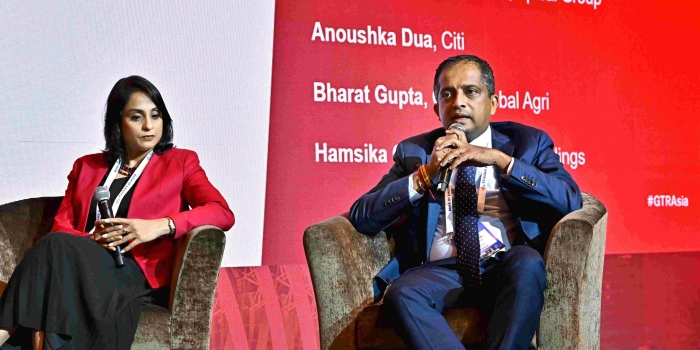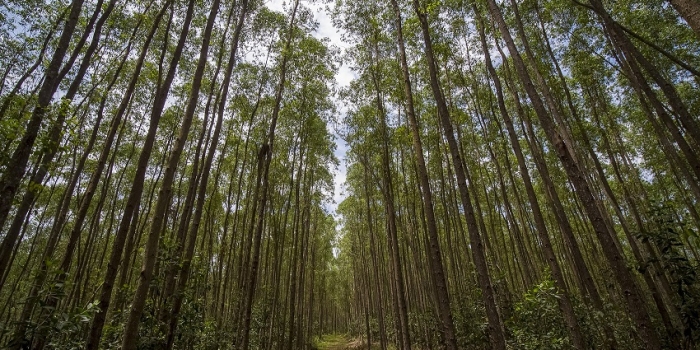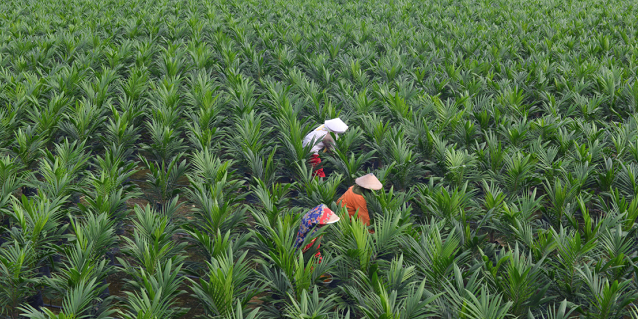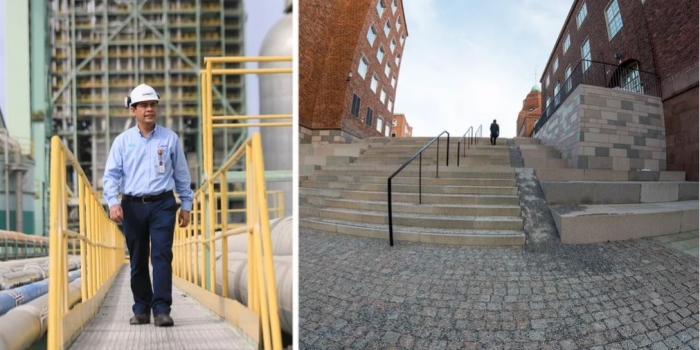COVID-19, the prolonged Russia-Ukraine war and inflationary pressures have tested the ingenuity, resilience and flexibility of organisations. The recent GTR Asia event in Singapore attracted over 1,000 participants. It featured a panel discussion titled “Post-COVID recovery, tectonic shifts and supply chain redistribution” which examined themes across a range of issues, including supply chain resilience and redistribution, commodity pricing shifts, as well as the impact of a heightened sanctions environment on Asia’s trade.
The takeaway was clear – expect the unexpected. In the current landscape, companies that fare well are those that are innovative and agile, with sound risk and cost management strategies.
Mr Pratheepan Karunagaran, Executive Director of Apical, a member of the RGE group of companies, was part of the panel discussion. He said: “RGE’s palm business, represented by Asian Agri and Apical, leads the industry in scale and volume. Because we produce at scale, we are also able to create a positive impact at scale.”
“We are able to withstand the test of changing weather conditions, price volatility, as well as the challenges associated with geopolitical tensions and trade, due to our solid risk management framework, coupled with a robust and flexible supply chain,” he emphasised.
Moderated by Deutsche Bank’s Matthew Moodey, Head of Trade & Lending ASEAN & Head of Trade Finance Structuring, APAC, the panel discussion featured four other distinguished speakers. They were Ms Anoushka Dua from Citi, Mr Munish Kaushal from GlaxoSmithKline Consumer Healthcare, Mr Bharat Gupta from Olam Global Agri and Ms Hamsika Gopalan from Rescom Holdings.
Integrated business model protects the livelihood of smallholders
Mr Karunagaran shared how the livelihood of oil palm smallholders in Indonesia was impacted when the movement control order to contain the exponential spike in COVID-19 cases was imposed. Many smallholders in the country were affected as delayed harvest of fresh fruit bunches (FFBs) could lead to fruit spoilage.
RGE’s integrated business model had mitigated these production risks, allowing Asian Agri to continue producing palm oil, in partnership with the smallholder farmers whom it supports. This, in turn, provided Apical with a steady stream of FFBs for palm oil processing into food, oleo chemicals and biodiesel for domestic use and international export.
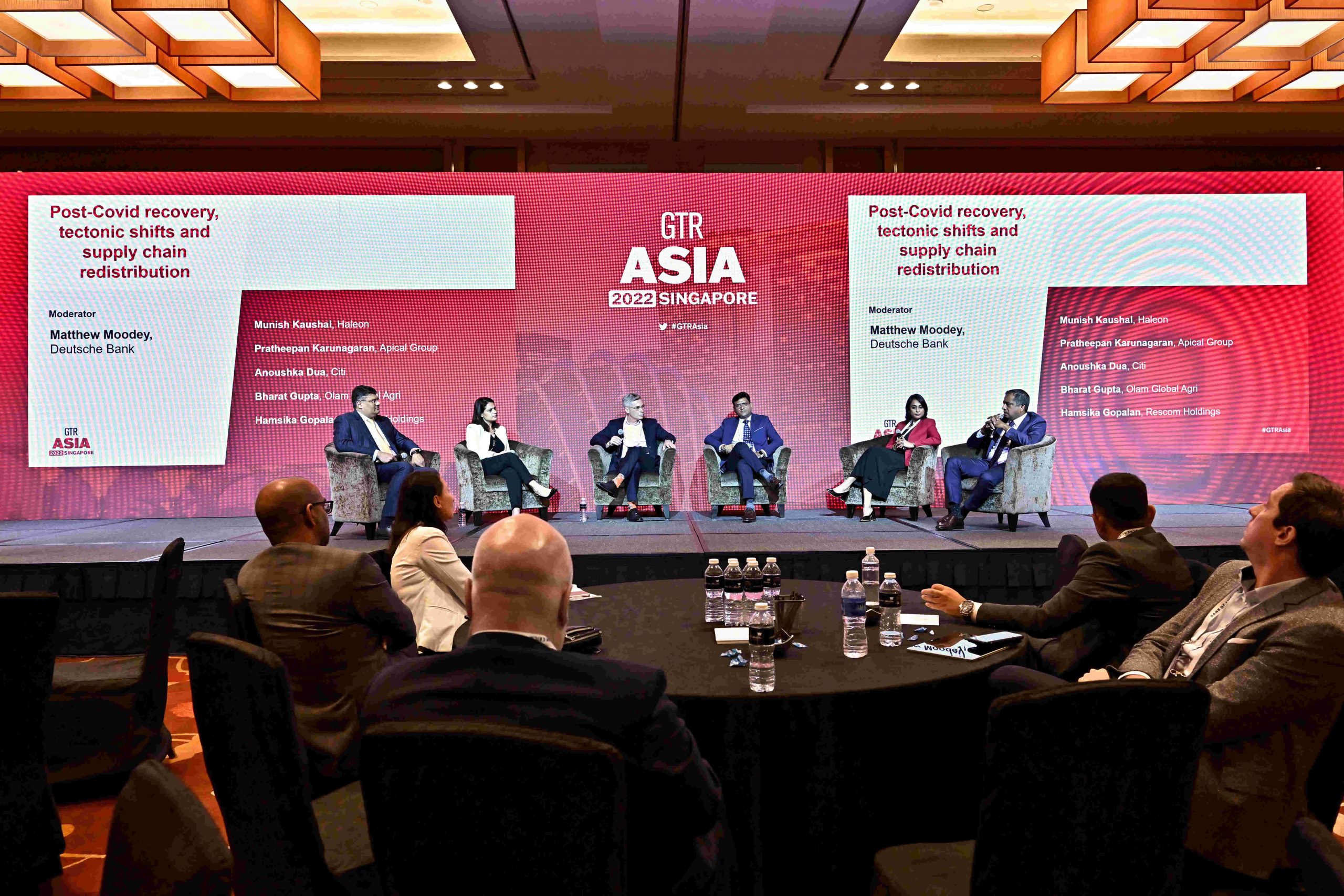
Joining Mr Pratheepan Karunagaran at the panel discussion were Ms Anoushka Dua from Citi, Mr Munish Kaushal from GlaxoSmithKline Consumer Healthcare, Mr Bharat Gupta from Olam Global Agri, Ms Hamsika Gopalan from Rescom Holdings and moderator Deutsche Bank’s Matthew Moodey, Head of Trade & Lending ASEAN & Head of Trade Finance Structuring
Nimbleness to navigate cross-border transportation challenges
Mr Karunagaran also highlighted that the war in Ukraine has disrupted the supply of half the global sunflower oil exports generated by that country. Around the world, shipments for the widely used sunflower oil have been affected.
To meet customers’ needs and ensure that its brands continue to be on the shelves in India and Southeast Asia, Apical began seeking and deploying its ships along alternative import routes, to which Mr Karunagaran said was possible because of the company’s adaptable supply chain.
Beyond better risk management and supply chain resilience, the panellists also shared views on how financial institutions can support the ecosystem in these unprecedented times.
Widening sustainability-linked financing options
Mr Karunagaran encouraged a closer partnership between financial institutions and companies that are committed to furthering their ESG goals. He raised the example of the US$750 million sustainability-linked loan (SLL) secured by Apical last year. This financing option, which requires borrowers to meet clear ESG targets, has become a common driver of more sustainable business impacts – creating a win-win situation for both parties.
Financial institutions can also help the underserved smallholder farmers in a better way, by availing micro financing or guiding them on their sustainability journey through large integrated suppliers such as Apical.
He added, “Let’s work more closely together so that not only large companies like ours can continue to produce from the land and protect it, but the hundreds of thousands of smallholders whose livelihood depends on agriculture can also be brought along on the sustainability journey.”
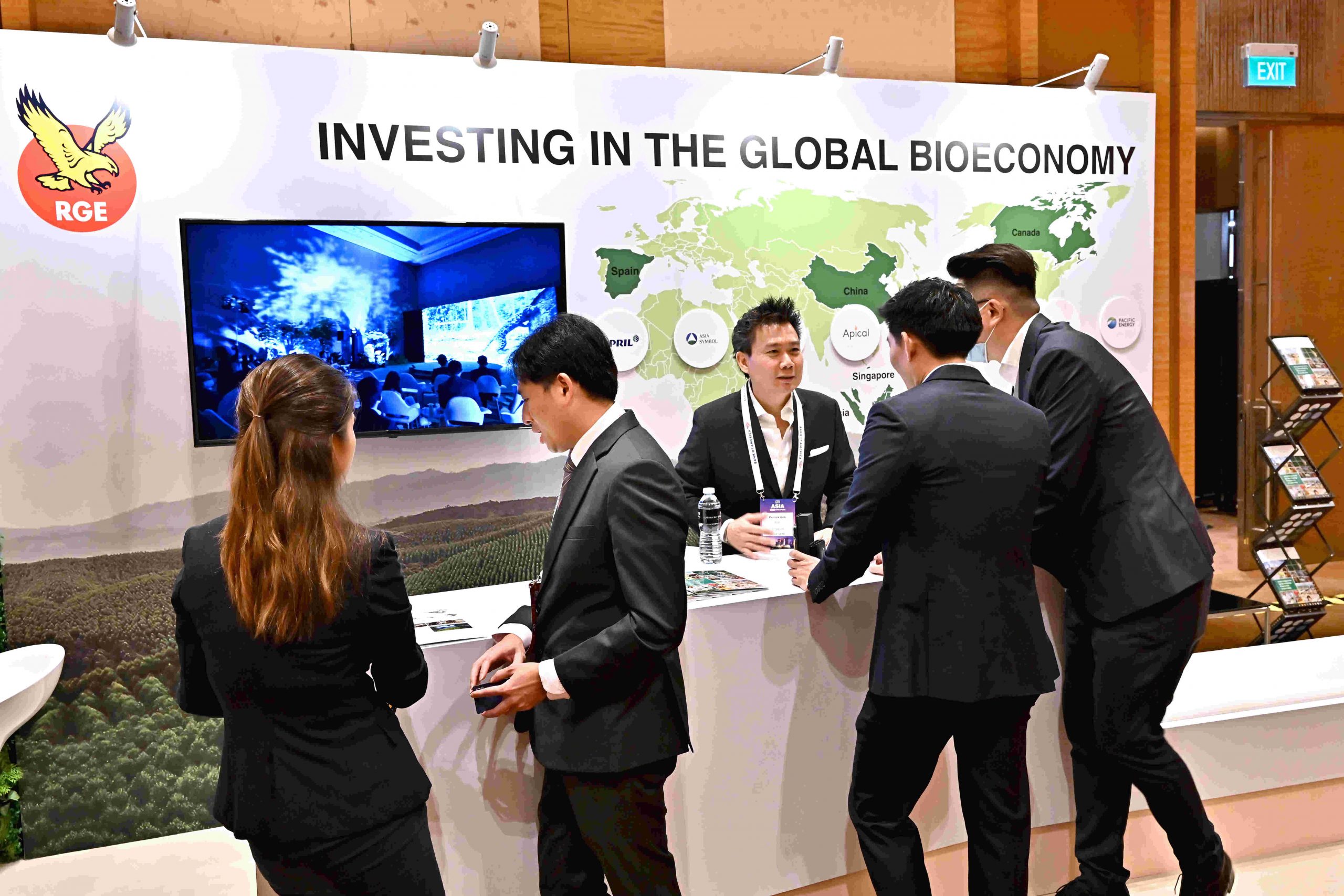
Visitors making enquiries at the RGE booth at GTR Asia



